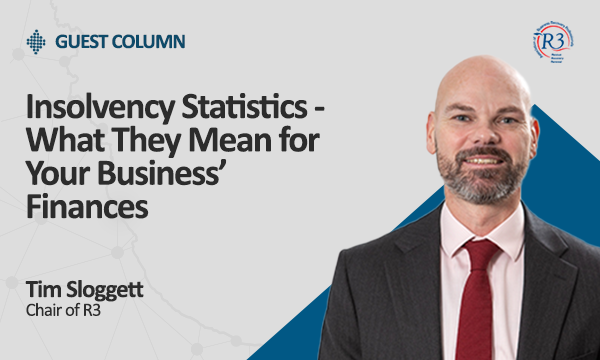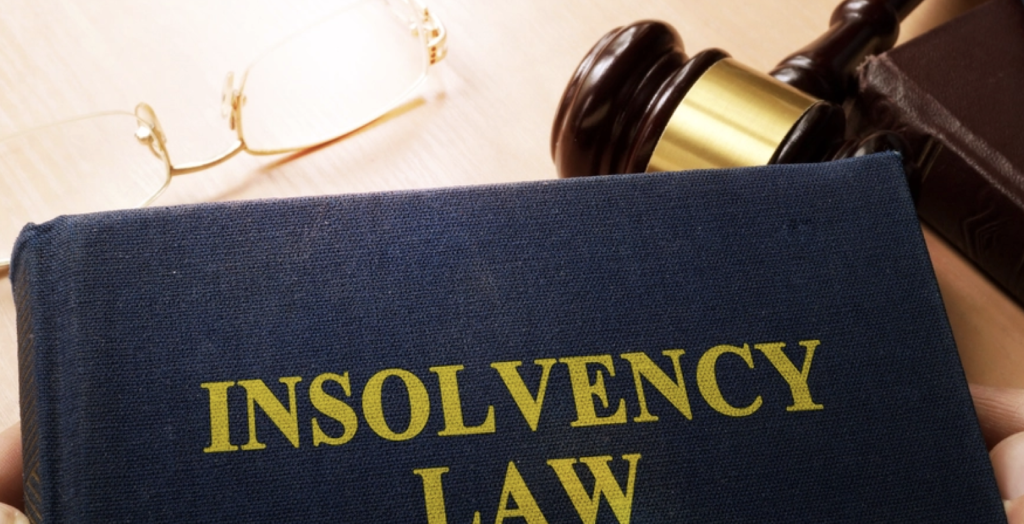The Ultimate Guide To Insolvency Practitioner
The Ultimate Guide To Insolvency Practitioner
Blog Article
The Single Strategy To Use For Insolvency Practitioner
Table of ContentsInsolvency Practitioner Can Be Fun For EveryoneHow Insolvency Practitioner can Save You Time, Stress, and Money.How Insolvency Practitioner can Save You Time, Stress, and Money.Insolvency Practitioner Fundamentals ExplainedInsolvency Practitioner Can Be Fun For EveryoneHow Insolvency Practitioner can Save You Time, Stress, and Money.How Insolvency Practitioner can Save You Time, Stress, and Money.
Insolvency is when liabilities are above the worth of the business, or when a debtor can not pay the financial obligations they owe. A firm can end up being financially troubled because of a number of circumstances that bring about bad cash money circulation. When faced with bankruptcy, a business or individual can call creditors straight and restructure financial obligations to pay them off.Insolvency can result in insolvency procedures, in which legal activity will certainly be taken versus the insolvent person or entity, and assets may be sold off to settle arrearages. Service proprietors might call creditors directly and restructure debts right into more convenient installments. Creditors are normally amenable to this strategy due to the fact that they wish to be settled and prevent losses, also if the payment is on a delayed timetable.
10 Easy Facts About Insolvency Practitioner Shown
The proprietor produces a proposal outlining how the financial debt may be restructured making use of price decreases or other strategies for assistance. The proposal reveals financial institutions just how the service may create sufficient capital for profitable procedures while paying its financial debts. Commonly, a forgiven financial obligation may be taken into consideration earnings by the Internal Earnings Solution (INTERNAL REVENUE SERVICE).

Not known Details About Insolvency Practitioner
When operations discontinue, so does the business's income (Insolvency Practitioner). Some business come to be bankrupt since their goods or services do not advance to fit customers' transforming needs.
Costs go beyond revenues and expenses stay overdue. Cash-flow insolvency occurs when a business has the possessions to cover their debts yet they are in the wrong type, such as genuine estate rather of liquid funds. Balance-sheet insolvency, on the various other hand, indicates an absence of properties in any kind of type to cover debts.
The internal revenue service states that an individual is bankrupt when the total liabilities go beyond total assets. A personal bankruptcy, on the various other hand, is a real court order that depicts how a bankrupt individual or service will certainly repay their financial institutions, or how they will sell their assets in order to make the payments.
More About Insolvency Practitioner

Debt combination is when you combine several fundings right into one new car loan, commonly to attain better terms. Bankruptcy is not the like bankruptcy, although a company that has come to be insolvent might file for bankruptcy. Insolvency is the state of not being able to pay your commitments while bankruptcy is a lawful procedure to discharge your financial obligations.
Recognizing the elements that can result in insolvency, such as overspending, can assist you avoid insolvency and its repercussions.
Rumored Buzz on Insolvency Practitioner
It is popular that directors and officers of corporations (and managers of minimal responsibility business) owe fiduciary tasks to their organizations and their investors (or participants). These fiduciary obligations are defined by state laws and, though there are variants from one state to another, they normally include an obligation of commitment and a duty of treatment.
The duty of treatment needs supervisors and policemans to exercise diligence, to make enlightened choices, and to act in good belief to ensure that their actions are in the most effective rate of interest of the business. Past the scope of this conversation, some states permit these tasks to be restricted either by so keeping in mind in the organizational papers or complying with other needs.
Insolvency Practitioner Can Be Fun For Anyone
A lot of states define this hyperlink bankruptcy in two means( 1) when a company's obligations become higher than the sum of its possessions or (2) when the business becomes unable to pay its financial debts as they become dueand welcome both definitions (Insolvency Practitioner). The shift in tasks takes place since when a company is bankrupt, there is no value in the business beyond that owed to the firm's lenders to make sure that the equity holders no more have a financial risk in the business
Be careful about giving shareholders favoritism at the expense of creditors (e.g., authorizing and moneying a dividend or a stock redemption). Beware concerning preferential therapy between courses of investors. Clear up efforts a knockout post to find out all the facts before taking a certain program of action; directors ought to really believe that any kind of decisions made remain in the most effective interests of the company in its totality (i.e., choices will be examined in hindsight taking into account the result of such activities on the corporation).
In any insolvency or bankruptcy proceeding, payments made to specific lenders at the expenditure of various other creditors can be clawed back, particularly if there is some link in between the company and the creditor. Think about recommending at a yearly investor meeting (or any other meeting of investors) a resolution attesting that all prior company decisions and activities taken by the supervisors and policemans of the company were absorbed good faith after an exercise of practical care.
Unknown Facts About Insolvency Practitioner
Completely disclose any kind of individual or organization partnerships with celebrations on the other Read Full Article side of purchases entailing the company to avoid the appearance of a dispute of passion. In evaluating potential fund increasing purchases or a sale of assets of the struggling firm, be mindful that these transactions may be scrutinized later in light of any kind of succeeding expansion of directors' fiduciary tasks to include financial institutions.
Report this page